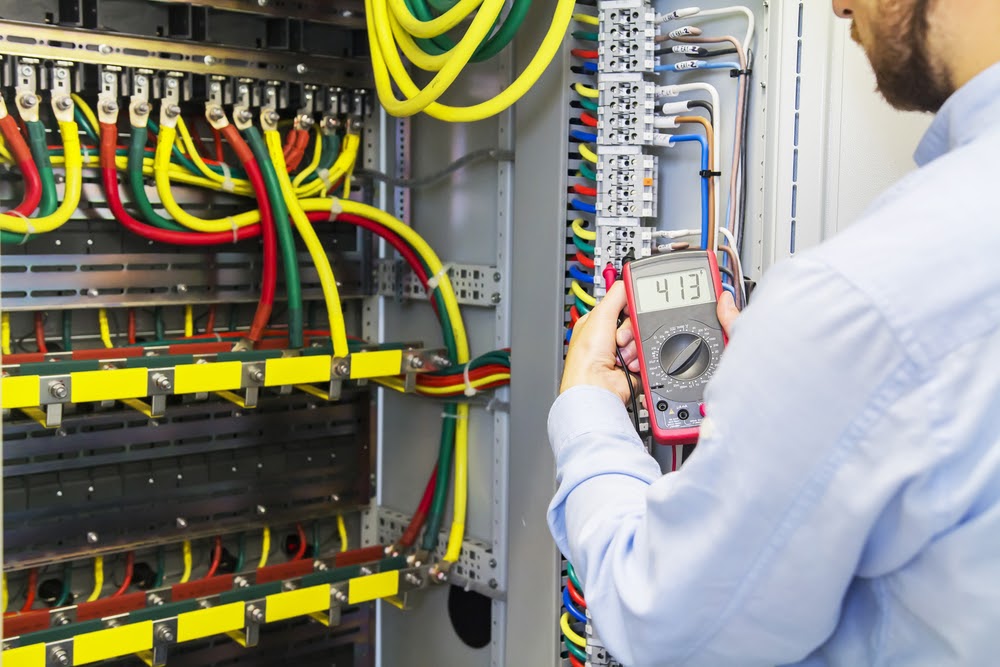
Single Phase Vs 3 Phase Power: What’s The Difference?
The main difference between single-phase power and three-phase power is that single phase power is primarily used in residential properties, whereas three-phase power is required for commercial properties. Whether you’re renovating your home or you’re training to become an electrician, the debate of single-phase vs 3-phase power has likely crossed your path at one time or another. Whilst it may seem like a minor element of electrical work on its surface, the discussion of single-phase vs 3-phase power in terms of their use is actually absolutely essential when it comes to varying types of properties and practical applications.
At All Electrics, we’re dedicated to assisting our customers with a full range of electrical services, while also helping them understand their electrical needs along the way. So, why is the single-phase vs 3-phase power debate so important, and what’s the difference between the two?
Single-Phase Power
What is it?
Whilst you may not know single-phase power by name, you’ve almost certainly used it in your daily life. Single-phase power is the power supply variety most commonly used in residential homes and comprises a two-wire alternating current power circuit (alternating current is where the term AC comes from when discussing electrical power).
A two-wire alternating current power circuit, as you might have guessed from the name, has two wires, the power wire and the neutral wire, which allow power to flow back and forth between them. The power wire brings power from the load, whilst the neutral wire brings electricity back to a busbar or earth of your switchboard which allows the electricity to flow efficiently throughout the system.
What are the benefits?
- The same process that allows electricity to flow easily also allows electricity to flow back to the circuit breaker in case of a fault, making it easier to protect you and your appliances from harm.
- In the battle of single-phase vs 3-phase power, single-phase power supplies tend to be more affordable, especially when it comes to initial purchases of equipment.
- Single-phase power can also easily be sent long distances using its two-wire system, making it an incredibly versatile setup.
- If you have standard appliances, single-phase power supplies should be more than capable of handling most potential household needs.
What is it?
Whilst single-phase power is the primary choice for residential properties, 3-phase power is the form primarily used in commercial and industrial areas that require a large amount of uninterrupted power. You may also find that you are connected to the grid by 3-phase power if you happen to live in a large, electricity-intensive home.
Unlike single-phase’s two-wire setup, 3-phase power has four wires: three active wires and one neutral wire. This allows your 3-phase power system to provide power at both 240v and 415v depending on your needs, as opposed to single-phase power systems which can only offer 240v.
What are the benefits?
- As discussed, a 3-phase system can provide power at both 240v and 415v, allowing for a lot of potential uses that aren’t available to traditional two-wire systems.
- A 3-phase system’s potential power output is three times that of its single-phase counterpart, all whilst only using one additional wire.
- Given its ability to triple output with a single wire, the 3-phase power system is far more efficient than the single-phase system.
- The power offered by these systems is more consistent, meaning that there are less issues regarding motors and applications that are always on due to power dips or flickering.
- The higher load capacity of these systems means that they can be used in industrial and commercial applications that single-phase systems wouldn’t be able to keep up with. This is also why homes may need to have their power systems upgraded to 3-phase systems in the event that they have a heated pool or other power-intensive application added.
Is One Conclusively Better Than the Other?
You could argue that 3-phase power systems offer more than single-phase systems, but neither is objectively better than the other. Single-phase systems are suited perfectly to residential use, and while a 3-phase system may be able to provide more power, this is often unnecessary or excessive in a household context. So, if you find yourself needing to decide between the two, it’s important to understand what the power requirements will be for that property before making a decision.
Want to learn more about electricity with a wide array of tips, tricks and helpful information? Explore the All Electrics blog today for more electrical news!

